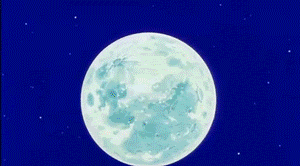What if the moon got blown to pieces?
- Thread starter shadowstriker86
- Start date
Recommended Videos
It would turn out to be a hollow sphere containing a mass relay.
And a reaper.
And some chips.
mmmmm, inevitable extinction and chips...
And a reaper.
And some chips.
mmmmm, inevitable extinction and chips...
I thought thethingthatlurks would be interested in the last bit too.thethingthatlurks said:Yeah, the sun's gravitational effect on earth is about 1000 times greater than the moon's, according to data from wiki and a rushed approximation I just did after waking up. Another thing that one shouldn't do...
When I first read your reply I felt like you were being patronizing, but I felt that less every time I re-read it. Maybe it's just how late it is, but... are you agreeing with me?manaman said:ka-snip
In case you weren't, yes, I am familiar with Newton's law of gravitation and the profound effect of distance when calculating the effect of gravity on celestial bodies. I did some calculations (partly to reassure myself about my ability) and found the net gravitational forces of the sun and moon on the earth, respectively (for the moon I got 1.982*10^20 N; the sun, 3.543*10^22 N). I found that the effect of the sun is a little shy of 180 times that of the moon, which is still appropriate, despite it's distance, given it's preposterous girth.
Now then, I find fault with your reasoning about the moon prominently affecting one side of the earth while the sun affects both. You cite the great distances involved, but I don't see the connection between a great distance and the sun's gravity being able to affect things the moon's cannot. They are the same force after all.
The foregoing calculations took a bit more effort than I thought they would, so I don't feel like researching this next point. I'm going on the memory of my astronomy course here. Now, because of the large diameter of the earth, any body's gravitational force is going to be more prominent on one side of the planet than the other. This would seem to support your assertion that the moon "has a noticeably larger effect on one side of the earth then it has on the other," but what actually happens (I believe) is that when the moon pulls harder on the front than the back, it stretches the planet out, into a very slight football shape, causing prominences of equal size on two opposing sides of the planet. This would be true if high tide happens at the same time on opposite sides of the globe, which I have no idea if it does.
Damn it. I can see how the argument could be made that the simultaneous high tide could be caused simply by the sun, and not the moon at all, but I could counter that if that were the case then the moon would add to the sun's force on one side of the planet, causing a slightly higher tide on that side. This could be proven/disproven through research I'm not willing to do, so instead I'll just re-state my earlier point that the difference of distance of the sun and moon from the earth only influences the magnitude of the force of gravity, not the behavior.
I'm sleepy.
/wall of text
Hmm, that could make a fine avatar. Too bad I'm content with the one I have right now.thenumberthirteen said:No more giant Sayan Monkeys roaming the Earth.

I love DBZ Abridged.
I guess I am agreeing with you. I don't really know anymore. I think I was up for about 20 hours when I wrote that. Couldn't sleep last night. Not that today is really any better. I got three hours of sleep.summerof2010 said:I thought thethingthatlurks would be interested in the last bit too.thethingthatlurks said:Yeah, the sun's gravitational effect on earth is about 1000 times greater than the moon's, according to data from wiki and a rushed approximation I just did after waking up. Another thing that one shouldn't do...
snipmanaman said:ka-snip
Try calculating the net grav. of Mars and Earth. That'll put your ass down. It really is too late for this sort of thing, isn't it?manaman said:I guess I am agreeing with you. I don't really know anymore. I think I was up for about 20 hours when I wrote that. Couldn't sleep last night. Not that today is really any better. I got three hours of sleep.
Shouldn't be for me normally. It's only 11:30, but I am working on 3 hours of sleep in the last two days.summerof2010 said:Try calculating the net grav. of Mars and Earth. That'll put your ass down. It really is too late for this sort of thing, isn't it?manaman said:I guess I am agreeing with you. I don't really know anymore. I think I was up for about 20 hours when I wrote that. Couldn't sleep last night. Not that today is really any better. I got three hours of sleep.
Oh shit, where are you? It's nearly 3 am here.manaman said:Shouldn't be for me normally. It's only 11:30, but I am working on 3 hours of sleep in the last two days.summerof2010 said:Try calculating the net grav. of Mars and Earth. That'll put your ass down. It really is too late for this sort of thing, isn't it?manaman said:I guess I am agreeing with you. I don't really know anymore. I think I was up for about 20 hours when I wrote that. Couldn't sleep last night. Not that today is really any better. I got three hours of sleep.
